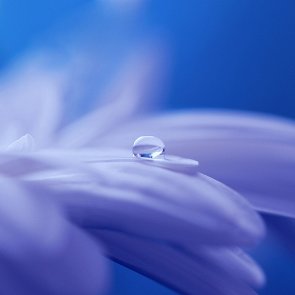What Is the Difference Between Emollients, Humectants and Occlusives?
 All moisturizers (or at least all good ones) contain three types of ingredients that help keep your skin hydrated: emollients, humectants, and occlusives. Working together, they complement each other for the best effect. What is the difference between these three categories of ingredients and why is each of them important?
All moisturizers (or at least all good ones) contain three types of ingredients that help keep your skin hydrated: emollients, humectants, and occlusives. Working together, they complement each other for the best effect. What is the difference between these three categories of ingredients and why is each of them important?Humectants
Let’s start with humectants because they are the ones responsible for drawing moisture to your skin. Humectants are hygroscopic substances that absorb water from the air nearby and hold onto it, helping your skin maintain the optimum moisture level.
The most common humectants in skincare products include glycerin (glycerol) and other sugar alcohols (xylitol, sorbitol, etc.), glycols (butylene glycol, propylene glycol, etc.), urea (carbamide), hyaluronic acid (sodium hyaluronate), lactic acid, collagen, certain vegetable oils, honey, and aloe vera gel.
Emollients
Emollients are lubricating and protective agents that keep the skin from losing the moisture that has been absorbed by humectants. In addition, they make the skin softer and smoother, prevent flaking, and provide some protection from the environment.
Emollients that you can find in your skincare products include petrolatum, mineral oil, liquid paraffin, lanolin, squalene, caprylic/capric triglyceride, certain alcohols (cetyl alcohol, stearyl alcohol, cetearyl alcohol) and their esters (isopropyl myristate, isopropyl palmitate), stearic acid, polyethylene glycol (PEG), silicones (dimethicone, cycolmethicone), and others.
Most vegetable oils and butters have both humectant and emollient properties: they draw moisture to the outer layer of the skin and then seal it there, making your skin feel softer and smoother. Another common ingredient that is both a humectant and an emollient is panthenol.
Occlusives
Occlusives are basically “evolved emollients” (in fact, the line is so thin that some cosmetic ingredients are classified as both emollients and occlusives, depending on who you ask). They create a physical barrier on the surface of the skin to seal moisture and protect your skin from aggressive outside factors.
Some common occlusives ingredients are heavy silicones, petrolatum, lecithin, waxes (beeswax, carnauba wax, candelilla wax, sunflower wax, various floral waxes, etc.), and butters (shea butter, cocoa butter, mango seed butter, etc.).
Occlusives are great for skin protection, but you should keep in mind that some occlusive ingredients are comedogenic, i.e. they clog skin pores, causing breakouts. This doesn’t mean that you must avoid them altogether, you should just be careful when trying a new product.
Bottom Line
The best moisturizers contain a combination of all three kinds of ingredients: humectants absorb moisture, emollients seal it in, and occlusives provide protection. When it comes to choosing a moisturizing product, it is usually best if you peruse the ingredient list to learn what exactly humectants, emollients and occlusives it contains.
For example, petroleum derivatives and some silicones can leave a heavy or slippery feeling on the skin. If you don’t like it, opt for moisturizers with lighter ingredients such as oils and waxes. Some occlusives, as we’ve already mentioned above, can be comedogenic and therefore not particularly suitable for some skin types.
The bottom line is, you should decide which ingredients work best for you based on your skin type and skincare goals. For instance, if you have oily skin, you may need moisturizers with more humectants, while dry skin needs all three types of agents. The key to a perfect skincare routine is finding the right balance and sticking to it.